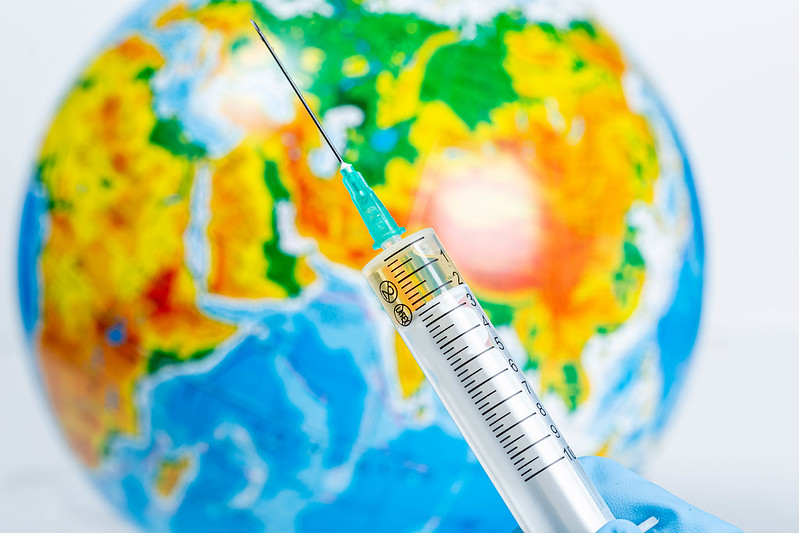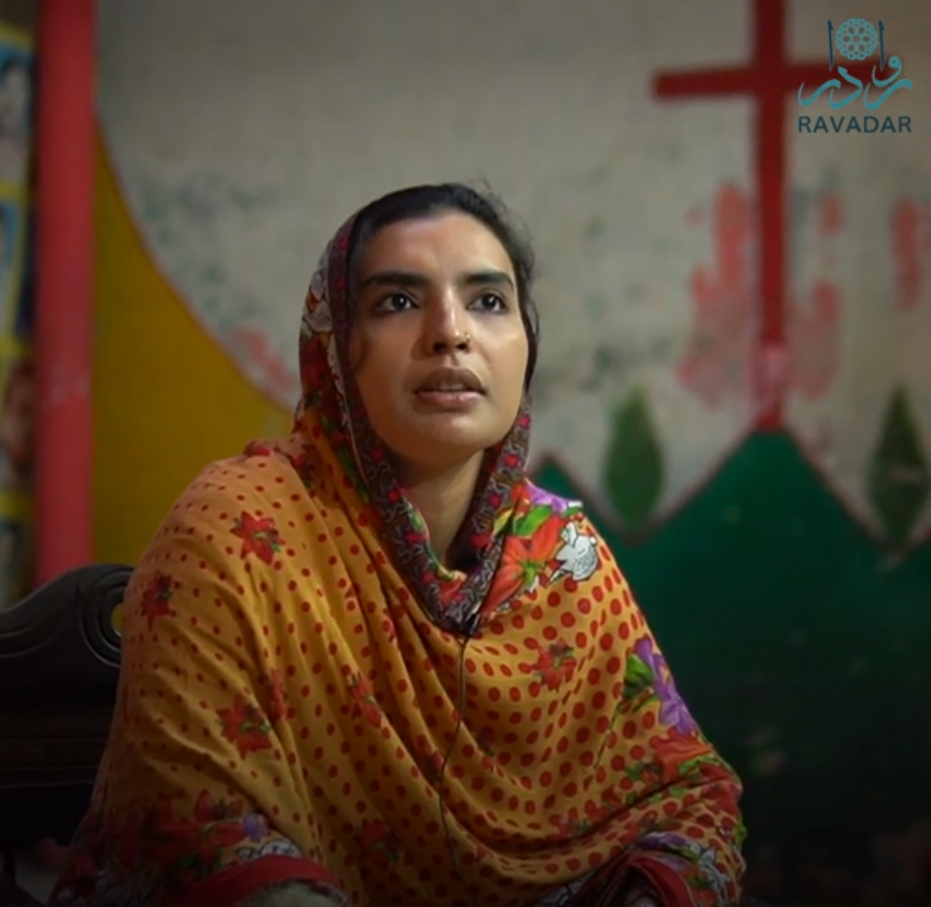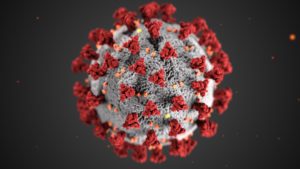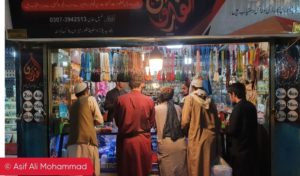In this analysis, Aroon Arthur, Jaffer A. Mirza and Mohsin Ilyas share findings from interviews in Islamabad/Rawalpindi and Lahore in which they find an alarming rate of acceptance of conspiracy theories surrounding the Covid-19 vaccine. They share their concerns for implications on Pakistan’s already socio-economically marginalised Christian communities and propose one approach for building trust and addressing vaccine hesitancy.

‘Some people say that there is a lobby that wants to eliminate [the] elder[ly] through [the] Covid vaccine[s]’, said a Pastor in Islamabad whom we spoke to as part of a small series of interviews we recently conducted. He was referring to widely shared misinformation that people will die two years after being vaccinated and, while he agreed that people should be vaccinated, he was sceptical about doing this himself. This contradictory attitude towards Covid-19, the vaccine and its presumed side effects is widespread across Pakistan. A recent Gallup survey suggests that 44% of Pakistanis still believe Covid is a foreign conspiracy. Indeed, scepticism and conspiracies surrounding Covid-19 are a global challenge. Such scepticism could be disastrous for communities that are already socio-economically marginalised, such as Christians in Pakistan, and we are concerned that their particular vulnerability as a result of extreme poverty and limited access to health services, is a blind spot in the government’s response to Covid-19.
Conspiracy theories around the origins of Covid-19 and its vaccine abound
Since the outbreak of Covid-19, several conspiracy theories have circulated on social media, ranging from the virus being created in a Chinese lab to it being deliberately spread to clean up ‘undesirable’ or extremely poor people (according to a video falsely claiming Bill Gates wants to depopulate the world). We interviewed 12 people from Islamabad/Rawalpindi and Lahore, almost all of whom confirmed that they had heard this story (with a few of them believing it!) amongst other stories.
The most popular story shared on social media, in WhatsApp groups and during our interviews is that the vaccine affects fertility or causes impotence. One interviewee, M. Iqbal* a Careem driver from Islamabad, said ‘I spend a lot of time on the roads with ordinary people and there are always some who think that they won’t be able to reproduce after the vaccine.’ Another interviewee, a Christian health worker, informed us that even educated families believed this conspiracy.
Pakistan’s slow roll out of the immunisation programme and vaccine hesitancy
As of 2nd July, the total number of cases in Pakistan since March 2020 are 959,685 of which 905,430 have recovered and 22,345 have died. Given its population of 216 million, this looks, at first glance, like Covid-19 is being contained. Pakistan’s limited testing capacity, however, may be one reason why these figures are so low. Its immunisation programme started on 2 February 2021 and has administered 16.3 million doses so far with 1.93 per cent of the population now fully vaccinated and 5.87 per cent having received their first dose. At this pace of roughly 2 million doses per month, it will take nine years to vaccinate the entire population!
Beyond the slow pace of the roll-out, there is a more troubling phenomenon: people are reluctant to get vaccinated, perhaps unsurprisingly, given the widely circulated conspiracy theories. There is a clear discrepancy between the availability of the vaccine and the number of people being immunised. To address this, federal governments have applied punitive measures. For example, the Punjab government has threatened to block SIM cards of people refusing to be vaccinated while the Sindh government has warned that it would stop the salaries of any government employees refusing the vaccine.
Another key issue is lack of public trust in state authority. A recent study by Action for Empowerment and Accountability (A4EA) concluded that in countries ‘with fragmented authority, conflict, uncertainty and legacies of repression’, poor and marginalised [people had] little trust in public authorities’. This is corroborated in CREID’s own work where non-Shia residents of Quetta showed more distrust in the local government attempts to contain Covid-19 than they did towards Shias, who were blamed for its spread.
Why are Christian communities particularly at risk?
Lahore’s estimated 2 million Christians face social and financial marginalisation due to systematic discrimination, for example around jobs opportunities and recruitment (e.g. limited to sanitation and janitorial work). Most live in slums and informal settlements, such as Youhanabad and Joseph Colony, in extremely ghettoised conditions. Unable to maintain social distancing, this environment is fertile for viral transmission. Christians, of course, can be equally susceptible to misinformation and sceptical about the vaccine. In G8, Islamabad, one Christian leader we spoke to estimated that only 50 per cent of the people in his area have been vaccinated while the rest were reluctant, fearing side effects such as dying after two years. Such scepticism, alongside their historic socio-economic marginalisation, makes this community especially vulnerable to Covid-19. So far, government engagement with local churches and community leaders to increase immunisation rates has been patchy.
Saleem Sylvester, a social worker from Friends of United Christian Hospital, told us that the local commissioner had reached out to them in relation to opening a vaccination centre in the United Christian Hospital. Whereas Rev. Shahid Mehraj, Vicar of Lahore Cathedral Church, Church of Pakistan, said ‘Although the local commissioner and police officials normally visit us and take care of the SOPs, the government has not contacted [us] directly for the Covid-19 vaccination for the Christian community’. One Pastor in 66 Quarters, another Christian locality, said ‘the government hasn’t contacted us to raise awareness about Covid-19 and its vaccine and I don’t think any other church has been contacted. There are around 35 people in my church, and I don’t think anyone has been vaccinated’. Another Pastor in 66 Quarters added that ‘there are around 3,000 Christian houses and I think only 10 per cent might be vaccinated and that too maybe those who work in the public sector’.
Beyond the conspiracy theories, there is also confusion around how the vaccine works. Health worker Violet Arthur mentioned that people in the community asked what use is the vaccine if there is no guarantee that they will not catch the virus after being vaccinated? Others asked why people are not cured once vaccinated? This points to a lack of awareness around the vaccine as an immunity booster, despite both national and provincial campaigns on social media and TV.
Taking a community-based approach to tackle vaccine hesitancy
Our interviews suggest that one serious flaw in Pakistan’s countering Covid-19 strategy: the absence of a community-based approach. So far, the response has been predominantly top-down such as enforcing SOPs through police and media campaigns. The Ministry of Religious Affairs and Interfaith Harmony which is supposed to work as a bridge between religious minorities and government, seemingly did not engage faith and community leaders.
In the scenario of mistrust, the role of faith leaders becomes increasingly vital: not only to encourage vaccination uptake but also to rebuild trust between communities and the state.

One good example from the UK is the collaborative work between Public Health England, local councils and Muslim organisations such as the Muslim Council of Britain, Al-Khoei Foundation and East London Mosque to address the scepticism of some members of the community over the vaccine. Iqbal reminded that ‘there should have been awareness [programme] and seminars about Covid-19 through church-based approach’.
One significant benefit of the community-based approach is that people feel a sense of ownership and consider any intervention/initiative their moral and civic responsibility. In CREID’s Ravadar’s Water Filtration Project in Joseph Colony, for example, people were initially suspicious of ‘outsiders’ due to historical repression and violence. They later developed collaborative relationship with CREID’s local partner and the project is now run and maintained by the local community.
The data clearly suggests that Pakistan is way behind in the immunisation, therefore, it is high time for the governments to revisit their strategy and adopt a bottom-up approach which must include minority religious and community leaders.
Aroon Arthur is a human rights activist striving to promote minority and prisoners’ rights and specifically aims to abolish the death penalty in Pakistan.
Jaffer A. Mirza is a researcher and columnist. He tweets at @jafferamirza.
Mohsin Ilyas a social worker working in Islamabad to uplift the Christian community especially the low-income settlements. He runs an organization Minority Protection Trust with the motto “To lift others up”.
See also…
Christians to deal with discrimination in the political process
Pastors of Christian slums pulling through Covid-19
Christian women unveil the discrimination they’ve dealt with



